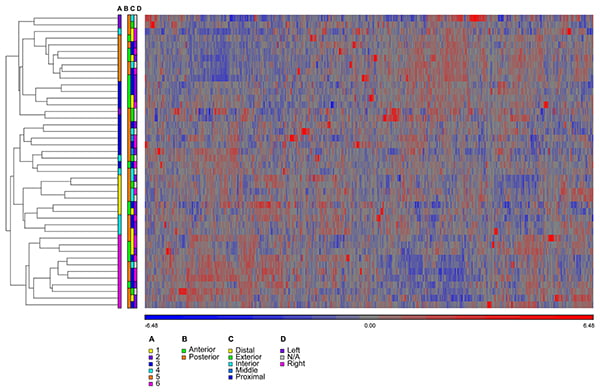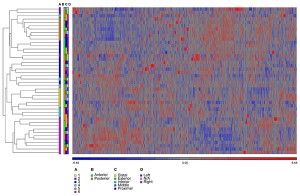Topical administration of drugs directly to the vaginal tract is an established approach for birth control and hormone replacement therapy. Extension of these strategies to the intravaginal administration of antiviral compounds for the prevention of HIV and HSV (genital herpes) infection is currently being explored, and researchers at Oak Crest are leaders in this nascent field. To date, investigations of intravaginal drug delivery have assumed that the drugs diffuse passively into the vaginal mucosa, and active transport processes by specialized proteins (membrane transporters) have been largely ignored.
A team led by Oak Crest scientists in collaboration with researchers at the University of Texas Medical Branch and the City of Hope have studied the genome-wide transcriptome in 44 vaginal tissue samples from 6 reproductive-age women undergoing gynecologic surgeries. The analysis revealed that, unexpectedly, a large fraction (43%) of gene isoforms corresponding to membrane transporters were over-expressed (above the median expression level) in all samples. Our results, recently published in the journal PLoS One, indicate that active transport in the vaginal mucosa could play an important role in the absorption and secretion of topically and systemically administered drugs and the effects of these transporters needs to be taken into account when developing strategies for the prevention of HIV and HSV.


